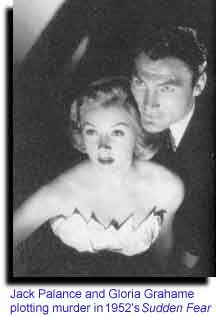|
|
William Pfaff
 Violence in society comes from the top as well as the bottom
Violence in society comes from the top as well as the bottom
PARIS -- In September 1939, when Germany invaded Poland and the second world war began, the United States was one of the least militarized of nations.
The U.S. army ranked 19th in size among world armies, behind Portugal and ahead of Bulgaria. There were three organized divisions, all 50 percent understrength. Today, in another peacetime, the United States has standing military forces larger than those of all the other industrial nations combined.
When the movies were young, the pistols of cowboys and
G-Men went "pop," and villains clutched their breasts and
fell over. "Shane" was an innovation: Alan Ladd's revolver
went "BANG," and Jack Palance jerked backwards as if he
had been hit with a plank.  The other evening, on television, I
zapped into a late movie episode in which a woman had a
towel thrown over her and was being beaten in the face by
another man and woman as the towel gradually turned red.
The other evening, on television, I
zapped into a late movie episode in which a woman had a
towel thrown over her and was being beaten in the face by
another man and woman as the towel gradually turned red.
Lucian K. Truscott 4th, descendant of a old American army family, wrote recently about visiting a "practical shooting" course in Louisiana where children were being walked through what was in fact a combat course. Human silhouettes popped up right and left, and the children would "kill" them, firing semi-automatic assault rifles.
He noted that today "children wear camouflage outfits to school, and men in combat-style fatigues and boots walk around Wal-Mart looking as if they were just back from patrol in Bosnia." As he says, these people "are not veterans or interested in joining the military...." They are play-acting a fantasy.
It scarcely needs saying that the fantasy of gunplay and violence is one constantly fed them by the entertainment industry. Industry spokesmen assure us that "no evidence exists" to connect their product with children who gun down their schoolmates, or kidnap and murder an infant in a manner depicted in a video.
In the weeks leading up to the most recent schoolyard shootings in Jonesboro, Ark., something else was on television. The news was dominated by an impending American attack on Iraq. Planes were repeatedly shown being catapulted from carriers, followed by stock shots of missile destruction.
Government officials, echoed by Congress, columnists, and editorial writers in most of the mainstream press, told Saddam Hussein that he had to choose between capitulation and destruction. They said that the only language he understands is force." In the event, what seems to have been demonstrated was that force was the only language Washington understood.
The January issue of an excellent international publication, The Journal of Contemporary History (connected with the Wiener Library in London), contained an article on how military force was depicted in British public discourse and press during the years leading up to the first world war. Certain parallels with the present spring to the eye. (The author is Glenn Wilkinson of Mount Royal College in Alberta, Canada.)
In the intellectual context of the Edwardian period, that of social Darwinism, war was thought "a test of ... natural superiority." The naturally superior had rights over the inferior, to correct them, and educate them in the norms of civilized and legal behavior.
Thus repression of the Boer rebellion against British rule in South Africa in 1899-1902 was "a positive undertaking, a necessary medical operation." The Daily Mail expressed confidence that British troops would soon bring the rebels "to reason."
The leader of an anti-British uprising in Somaliland in 1902 had also to be "brought to reason" by imperial forces. War was the way to correct behavior among people who were incorrigibly backward, as in Somaliland.
Destruction of a force of 300 poorly armed Tibetans during the 1904 British expedition to Lhasa was welcomed by The Glasgow Herald as inculcating a "wholesome dread." The Tibetan general was "ringleader" of a "mob," resisting the forces of law-abiding civilization. The Tibetans had been taught "a much-needed lesson."
In 1911 an Italian expedition in Libya destroyed an Arab and Turk force in what was called the "Oasis Massacre," but London's Daily Mail said that the Italians "had no alternative but to give this horrid lesson." The Illustrated London News agreed, approving "a most serious lesson to the Arabs."
Success was evidence of the virtue of one's cause. Mr. Wilkinson writes that "it was not seen as a matter of ‘might makes right,' but rather as ‘right always tended to create might.'"
This reassuring conclusion is not so different from some ideas expressed today. We could rewrite some of these Edwardian episodes using a vocabulary of Islamic fundamentalism, international terrorism, rogue nations, and international order and benevolent hegemonies, and find them familiar.
I suggest that the problem of violence in contemporary society exists at the top as well as at the bottom. The language, but also the thought, of government, political analysis, and public discourse has coarsened, taking for granted a casual recourse to violence against people who by their behavior or nature are assumed to invite it.
This surely influences private behavior, just as violent
entertainment and the gun culture do. On the record, little or
nothing is to be expected from the people who control the
entertainment and gun industries. Society has a right to ask
more from those who
4/13/98: Clinton's foreign policy does have a sunny side, too
4/8/98: Public interest must control marketplace
4/5/98: Great crimes don't require great villians
3/29/98: Authority rests on a moral position, and requires consent
3/29/98:Signs of hope in troubled Russia
3/25/98: National Front amassing power
3/23/98: NATO's expansion contradicts other American policies
3/18/98: The New Yorker sought money, but lost it
3/16/98: America's 'strategy of tension' in Italy
3/13/98: Slobodan Milosevic may have started something that can't be stopped